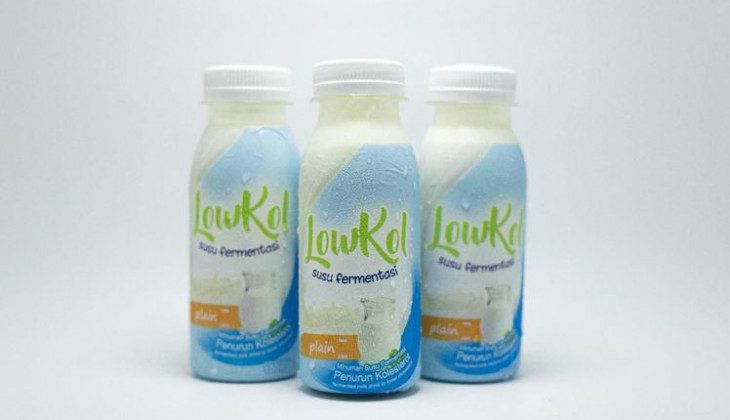Dyslipidemia is defined as having high levels of lipids or lipoproteins in the blood. This disease is one of the risk factors for cardiovascular and cerebrovascular diseases. The increasing prevalence of dyslipidemia does not only occur in Indonesia but also throughout the world. Dyslipidemia accompanied by smoking, physical inactivity, and obesity could cause coronary heart disease. The 2018 RISKESDAS data shows that 28.8% of the Indonesian population over five years old has total cholesterol above normal.
Treatments of dyslipidemia include pharmacological and non-pharmacological therapy. Curative pharmacological therapy using anti-lipid drugs can reduce risk factors for heart disease by about 25-30%, but this therapy has side effects on health. We need a more preventive non-pharmacological therapy, such as adjusting the diet or consuming healthful food. Healthful food is food that, apart from providing nutritional intake for the body, also has health effects due to the bioactive compounds contained in it. One type of healthful food developed by UGM is fermented milk containing probiotics called LowKol which can lower cholesterol levels.
Prof. Widodo Hadisaputro, a member of the LowKol researcher, said this product utilizes a local human strain of probiotics from Indonesia, namely Lactobacillus casei (L.casei) AP, which can reduce total cholesterol, LDL, and triglyceride levels. He stated Lactobacillus is a genus of lactic acid bacteria with potential as probiotics. The genus Lactobacillus originating from the digestive tract is easy to culture and has resistance to conditions in the digestive tract. “Consuming fermented milk that contains Lactobacillus probiotics can lower cholesterol, increase insulin sensitivity, and type 2 hyperglycemia,” said Widodo on Friday (13/8).
The lecturer at the UGM Faculty of Animal Science said that the development of this cholesterol-lowering fermented milk began after he successfully isolated L. casei strains AP and AG from the digestive tract of Indonesian infants who only consume breast milk (ASI). From the in vitro test, AP and AG strains that have potential as probiotics are characterized by high in vitro attachment to gastric mucin and SCFA synthesis ability.
Furthermore, the ability test of L. casei strains AP and AG as a starter culture of fermentation showed that it decreased the pH of milk from 6.37 to 4.27 and 4.31 during 8 hours of fermentation and increased the number of cells of L. casei strains AP and AG. These results indicate that L. casei strain AP and AG isolated from the digestive system of infants can act as a starter culture in milk fermentation. “The intervention test of probiotic fermented milk products on obese respondents for one month could reduce total cholesterol, LDL and blood triglycerides (unpublished). Because of its ability to lower blood cholesterol, this fermented milk product is called LowKol,” he recalled.
From various test results in the laboratory, he said that several milk components play a role in lowering cholesterol. This includes the content of short chain fatty acids, which can reduce lipolysis in adipose tissue, thus reducing circulating free fatty acids (FFA) or non-esterified fatty acids (NeFA). He explained that the decrease in cholesterol by probiotic bacteria is also related to cholesterol assimilation and bile salt enzymatic deconjugation by bile salt hydrolase (BSH) enzyme activity, and the ability to synthesize exopolysaccharides. “Cholesterol assimilation in the digestive system involves the attachment of cholesterol to the surface of the probiotic cell membrane, thereby reducing the absorption of dietary cholesterol into the blood,” he explained.



